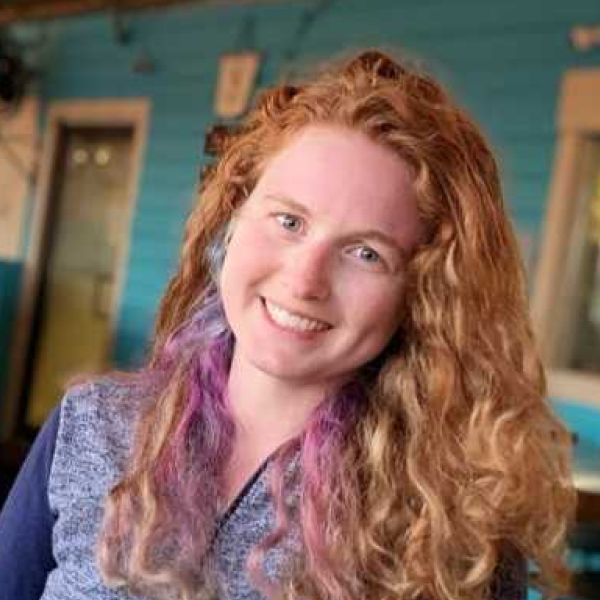As BenchSci moves forward on our journey to becoming a more diverse, equitable, and inclusive company, we continue our efforts to learn about, celebrate, and amplify the voices and accomplishments of people from diverse backgrounds.
On October 19th, in honor of Mental Health Awareness and Disabilities Employment Awareness Month, BenchSci hosted Showing Up: Accommodations and Accessibility in a Remote-first World, a panel discussion that delved into the experiences of three remarkable business leaders and strong accessibility advocates. The panelists shared a bit about their experiences with accessibility and accommodation in the tech industry, their advice for navigating the challenges therein, and what they envision for the future of accessibility in a world beginning to embrace remote work.
As a parent of a child with two rare, debilitating conditions and someone who regularly experiences mental health challenges, this panel really spoke to me. Working remotely at BenchSci has empowered me to care for my daughter and myself while contributing to the company's mission and making a real impact in the world.
Hosted by BenchSci's Independent Director of Leadership, Kari Sulenes, the panel featured these prominent supporters of diversity, equity, and inclusion:
Terri Storey, CEO of iHealthOx—a platform that makes it straightforward for members to access mental health and primary care to improve whole-body health—also founded Terrace Wellness Group, one of the largest treatment organizations in Ontario.
Amanda Munday, CEO of The Workaround—a parent-friendly coworking space with childcare on-site in Toronto—is a queer mother of two young children and author of the postpartum depression memoir Day Nine.
Prasanna Ranganathan, Senior Lead of Diversity & Belonging at Shopify, has over 15 years of experience in diversity and inclusion, across the legal profession, the entertainment industry, and tech. As a racialized, LGBTQ2+ person with a disability (legal blindness), he brings his credentials and work experience to everything he does.
During the panel, Terri Storey told us companies should "evaluate what [they] have" regarding accommodation and ask themselves if they are meeting the diverse needs of their team members. She stressed that companies need to consider all of their employees, not just those with visible disabilities.
Assuming "what you see is what you get" is biased toward disabled individuals. You may look at me, for example, and see a happy-go-lucky person—you will usually find me smiling and ready to laugh—but I struggle with my own mental health. Joking around and smiling is how I hide what I feel inside because being let go from job after job has instilled in me the idea that it's better to hide that side of myself. If those employers had informed me about the accommodations they provide during onboarding—without singling me out—I would have felt more comfortable being open about what I actually need to do my best.
I love working—it is my passion to help others—and I am lucky to have found a place at BenchSci. Here I am surrounded by individuals who accept me as I am—not only as someone who struggles with their own mental health but as a full-time caregiver to my daughter.
Amanda Munday emphasized the importance of workplaces accommodating peoples' whole selves—team members shouldn't be asking themselves, "Am I psychologically safe to ask for what I need" with this company? For example, Amanda shared how she was admitted to a psych ward for postpartum depression, and immediately after discharge, she worried about work—how would she open up about her experience at her job? Ultimately, she left that job as she didn't feel she was getting the safe space her workplace owed her. Amanda left her job in search of a better opportunity for not only herself but for parents across Toronto and created The Workaround. This daring move brought her the peace of mind she needed.
Amanda also pointed out the need for leaders to "...be models. Set up clear expectations, make accommodations clear, and set clear boundaries and expectations." Personally, I have met disabled individuals who struggle to find a job that doesn't make them feel like a burden on their workplace. It can feel like walking out into a minefield—it's never clear where you need to move because you can't tell when the next explosion might pop up. But by encouraging a workplace culture that accepts everyone and creating accommodations without being asked, you can open the door to a larger talent pool with more diverse points of view, which can only help create a better company overall.
Prasanna Ranganathan provided a different perspective when it comes to remote work. He informed us that, in some cases, remote work could create more barriers for those with mental health struggles and disabilities. For example, Prasanna mentioned that the increased screen time remote work entails is causing his vision to deteriorate faster. Remote working can also make it difficult for individuals to distinguish work and home life—leaving the scales unbalanced—which can lead to mental health struggles. It's important that companies carefully consider issues like these as remote work evolves.
On the other hand, remote work opens up the possibilities for people with disabilities to work in places they might never have had the option to before. It has also allowed me to find and keep a great job while still being able to care for my daughter, even when she's hospitalized, which was a point of contention for several jobs I've left over the years. Working at BenchSci remotely has given me the freedom to work from my daughter's bedside in the hospital on multiple occasions. Remote work was a game changer allowing me the freedom to succeed in my career without needing to give up my responsibilities as my daughter's primary caregiver.
Watch the entire discussion below, and please share your comments!
